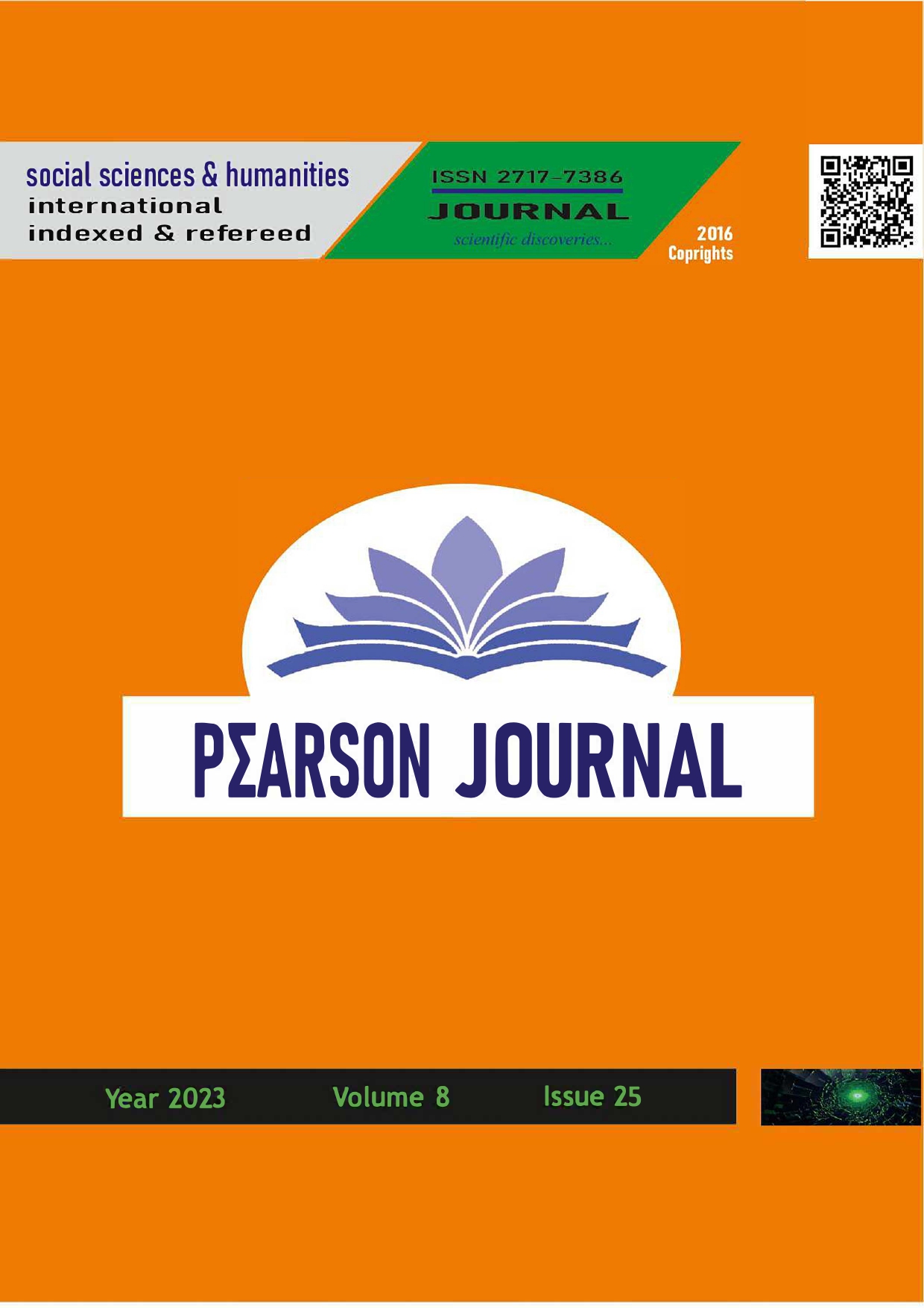The Effect of Timely Online Feedback on Student Achievement
DOI:
https://doi.org/10.5281/zenodo.8428440Keywords:
Computer Education and Instructional Technology, Feedback Timing, Feedback, Online FeedbackAbstract
Purpose: In this study, it was investigated whether timely online feedback in the Faculty of Education 2nd grade Scientific Research Methods course has an effect on students' academic achievement.
Design/Methodology/Approach: The study was designed as a quasi-experimental model with pretest-posttest control group by determining experimental and control groups. The sample consisted of 82 students with two groups of 41 students each at the same level. The lessons were taught by the researcher for nine weeks with the students in the experimental and control groups using the traditional method according to the learning objectives. In this study, a pre-test was administered to measure the levels of both groups before the experimental procedure and a post-test was administered after the experimental procedure. Independent samples t-test, dependent samples t-test, and effect size analysis were used to statistically evaluate the data.
Findings: According to the findings obtained in this study, according to the posttest mean scores of the experimental and control groups, a significant difference was found in favor of the experimental group with a medium effect size.
Highlights: As timely online feedback contributes to student success; similar research can be generalized by applying similar studies to student populations at different levels and to face-to-face and distance learning processes.
References
Aksoy, G., & Doymuş, K. (2011). Fen ve teknoloji dersi uygulamalarında işbirlikli okuma-yazma-uygulama tekniğinin etkisi. Gazi Üniversitesi Journal of Gazi Eğitim Fakültesi, 31(2), 381-397.
Baştürk, S. (2014). Eğitimde Ölçme ve Değerlendirme “Ölçme Araçlarının Taşıması GerekenNitelikler” (Editör: Savaş Baştürk). Nobel Akademik Publisher, Ankara.
Bloom, Benjamin S. (1979). İnsan Nitelikleri ve Okulda Öğrenme, (Translated by D. Ali Özçelik) İstanbul: Milli Eğitim publisher
Brinko, K. T. (1990). Optimal Conditions for Effective Feedback. (ERIC Document Reproduction Service No.ED326155).
https://files.eric.ed.gov/fulltext/ED326155.pdf
Brookhart, S., Moss, C., & Long, B. (2008). Formative assessment. Educational Leadership, 66(3), 52-57.
Butler, A. C., Karpicke, J. D., & Roediger III, H. L. (2007). The effect of type and timing of feedback on learning from multiple-choice tests. Journal of Experimental Psychology: Applied, 13(4), 273.
Büyüköztürk, Ş. (2002). Sosyal Bilimler için Veri Analizi El Kitabı. Ankara: Pegem Akademi. Sayfa 45-46.
Büyüköztürk, Ş., Çakmak, E. K., Akgün, Ö. E., Karadeniz, Ş. & Demirel, F. (2020). Bilimsel araştırma yöntemleri (28. Ed.). Ankara: Pegem Akademi.
Büyüköztürk, Ş., Çokluk, Ö. ve Köklü, N. (2011). Sosyal bilimler için istatistik. Pegem Akademi Publisher.
De Cecco, J. P. (1968). The psychology of learning and instruction: Educational psychology. https://eduq.info/xmlui/handle/11515/16560
Dohrn, E., & Bryan, T. (1994). Attributional instruction. Teaching Exceptional Children, 26, 61–63
Ezzat, H., Camarda, A., Cassotti, M., Agogué, M., Houdé, O., Weil, B., ve Le Masson, P. (2017). How minimal executive feedback influences creative idea generation. PLoS ONE, 12(6), 1–10. http://doi.org/10.1371/journal.pone.0180458
Hattie, J., & Timperley, H. (2007). The power of feedback. Review of Educational Research, 77(1), 81-112.
Hounsell, D. (1987). Essay writing and the quality of feedback. Student learning: Research in education and cognitive psychology, 109–119.
Karasar, N. (2012). Bilimsel araştırma yöntemi [Scientific research method]. Ankara: Nobel Publisher.
Kluger, A. N., & DeNisi, A. (1996). The effects of feedback interventions on performance: a historical review, a meta-analysis, and a preliminary feedback intervention theory. Psychological bulletin, 119(2), 254.
Köğce, D. & Baki, A. (2014). Secondary School Mathematics Teachers' Beliefs About Feedback Concept, Delivery Style and Timing of Feedback . Gaziantep University Journal of Social Sciences , 13 (3) , 767-792 . DOI: 10.21547/jss.256807
Marsh, H.W. (1990). The influences of internal and external factors of reference on the formation of English and math self-concepts. Journal of Educational Psychology, 82, 107–116.
Mory, E.H. (1992). The use of informational feedback in instruction: implications for future research. Educational Technology Research and Development, 40(3), 5–20.
Sadler, D.R. (1989). Formative assessment and the design of instructional systems, Instructional Science. 18(2), 119-144.
Scheeler, M. C., Rulh, K. L., and Mcafee, J. K. (2004). Providing performance feedback to teachers: A review. Teacher Education and Special Education, 27(4), 396-407.
Schimmel, B. (1988). Providing meaningful feedback in courseware. In D. Jonassen (Ed.), Instructional designs for microcomputer courseware (pp. 183-195). Hillsdale, NJ: Lawrence Erlbaum Associates
Shute, V. J. (2008). Focus on formative feedback. Review of educational research, 78(1), 153-189.
Tabachnick, B. G., & Fidell, L. S. (2013). Using multivariate statistics (6th Ed). United States: Pearson Education.
Turgut, Ü., ve Gürbüz, F. (2010) İlköğretim 6. sınıf öğrencilerinin “ısı ve sıcaklık”konusundaki kavram yanılgılarının düzeltilmesinde kavramsal değişim metinlerinin etkisi. Congress of IX. Ulusal Fen Bilimleri ve Matematik Eğitimi, 23-25 September, İZMİR.
Van De Ridder, J. M. M., Stokking, K. M., McGaghie, W. C., & Ten Cate, O. T. J. (2008). What is feedback in clinical education? Medical education, 42(2), 189-197. DOI:10.1111/j.13652923.2007.02973.x
Voerman, L., Meijer, P. C., Korthagen, F. A., & Simons, R. J. (2012). Types and frequencies of feedback interventions in classroom interaction in secondary education. Teaching and teacher education, 28(8), 1107-1115.
Wilbert, J., Grosche, M., & Gerdes, H. (2010). Effects of Evaluative Feedback on Rate of Learning and Task Motivation: An Analogue Experiment. Learning Disabilities: A Contemporary Journal, 8(2), 43-52.
Downloads
Published
How to Cite
Issue
Section
License
Copyright (c) 2023 PEARSON JOURNAL

This work is licensed under a Creative Commons Attribution 4.0 International License.



